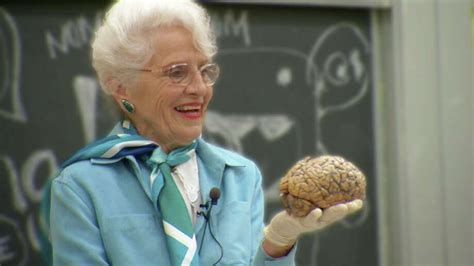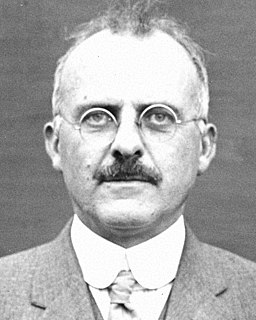A Quote by James D. Watson
The brain, is the most complex thing we have yet discovered in our universe.
Related Quotes
As we begin the 21st century, the Hubble space telescope is providing us with information about as yet uncharted regions of the universe and the promise that we may learn something about the origin of the cosmos. This same spirit of adventure is also being directed to the most complex structure that exists in the universe - the human brain.
With its hundred billion nerve cells, with their hundred trillion interconnections, the human brain is the most complex phenomenon in the known universe - always, of course, excepting the interaction of some six billion such brains and their owners within the socio-technological culture of our planetary ecosystem!
Since functional brain imaging first emerged, we have learned that there aren't very many brain regions uniquely responsible for specific tasks; most complex tasks engage many if not all of the brain's major networks. So it is fairly hard to make general psychological inferences just from brain data.
It is certainly a wonderful, a brain-staggering conception... that our own stellar universe may be but one of hundreds of thousands of similar universes... Familiarity with these mighty concepts most certainly does not breed contempt, does not dull our awe at the mightiness of the universe in which we play so small a part. It is very doubtful if any of those who are seriously studying the heavens ever lose their feeling of reverence for this supremely wonderful universe and for Whoever or Whatever must be behind it all.


































